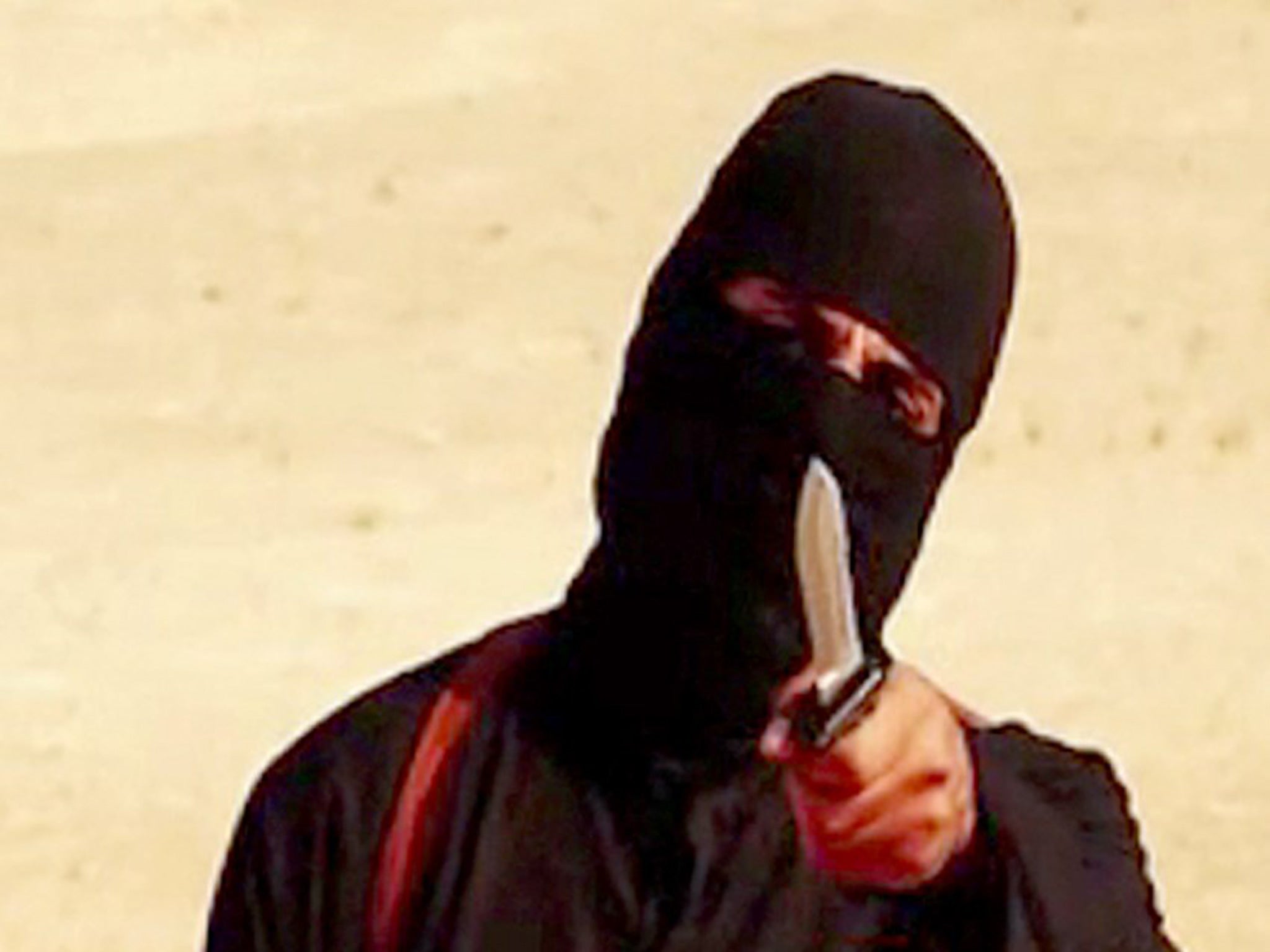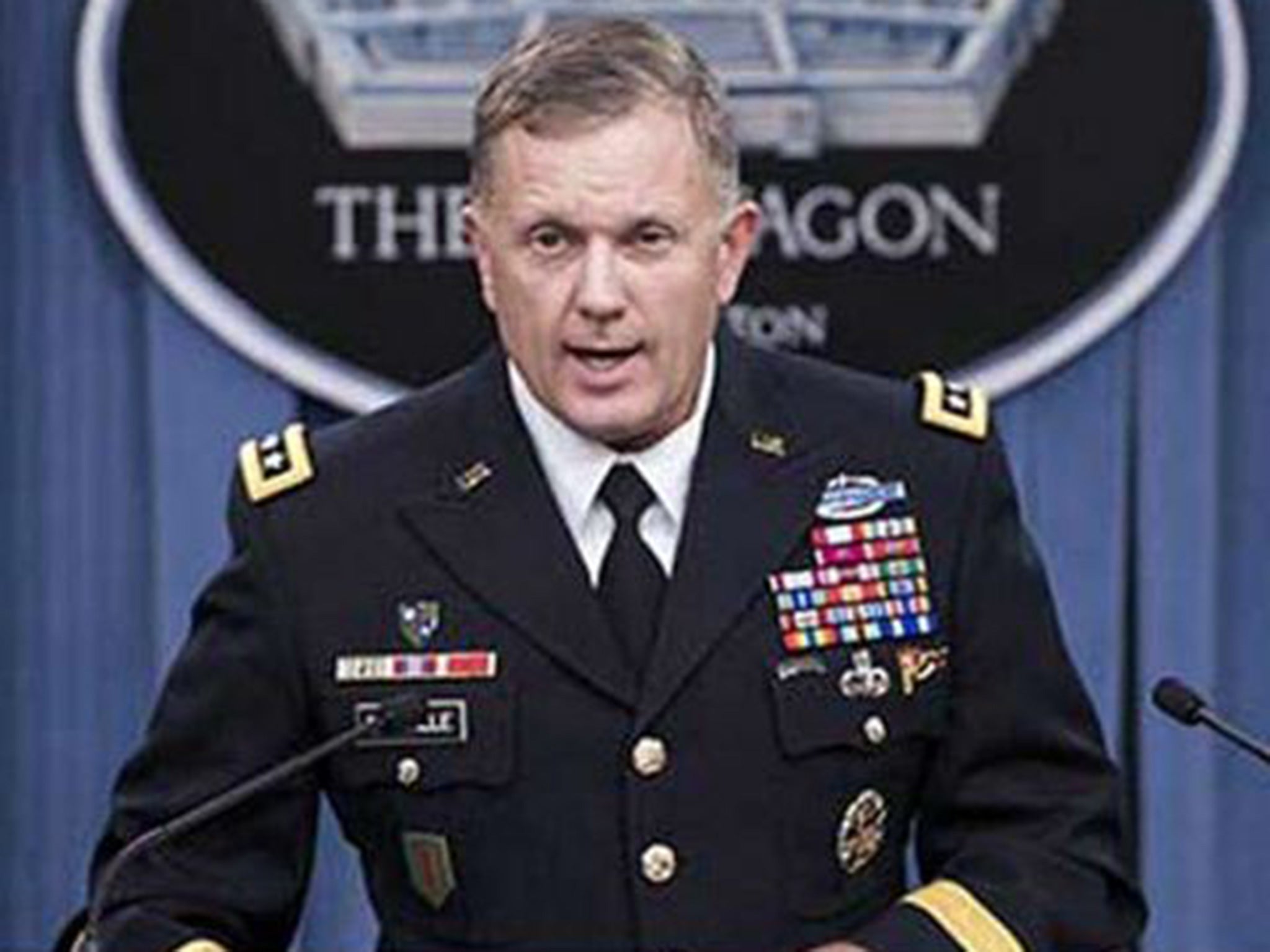Jihadi John 'dead': US confident Mohammed Emwazi killed by drone strike
'This was an act of self-defence - it was the right thing to do'

Mohammed Emwazi, the murderer who slaughtered Western hostages to fuel Isis propaganda, has almost certainly been killed in a US drone strike targeting the jihadist group’s capital, Raqqa, in Syria.
Late on 13 November, more than a year after Emwazi began murdering aid workers and journalists on film, it emerged that Turkish authorities had arrested a man, Aine Lesley Davis, a suspected associate of Emwazi. Davis is believed to have been assigned to guard foreign prisoners, including the Britons Alan Henning and David Haines, in Syria. Officials said he was arrested in Istanbul.
Emwazi’s killing came in an assassination by two American MQ9 Reaper drones, on what is referred to as a “decapitation mission”. He had been seen near the Islamic Court in Raqqa before getting into a car with three other men.
Near Clocktower Square, used for public executions by Isis, a Hellfire missile hit the vehicle on late on 12 November. The location, according to Western officials, was chosen for logistical rather than symbolic reasons. Emwazi, who became known as “Jihadi John”, is thought to have been watched for around five weeks before his death. The mission to kill the Isis executioner was American-led. Within hours, the Prime Minister David Cameron said it had been the result of a “combined effort” between Britain and the US.
With no human assets on the ground in or around Raqqa, Western intelligence agencies may not be able to say with absolutely certainty for some time that the victims, whose bodies were reportedly reduced to charred remains, included Emwazi. Analysts will be relying in part on Isis communications intercepted in the hours after the strike to understand whether or not he is dead.
Jordan and Turkey are said to have aided the attack. Separately, telephone calls made by Emwazi to Kuwait, where his parents live, were also useful in tracking him down, according to security sources.
The Pentagon spokesman Steve Warren said US intelligence was “reasonably certain” that Emwazi had indeed been obliterated. “We are still assessing the results of the strike,” John Kerry, the US Secretary of State, said at a news conference in Tunis, before heading last night to Vienna where he will meet counterparts from the G20 nations to discuss strategy to end the conflict in Syria and counter Isis.

“We are pursuing all possible avenues to confirm that he is dead, although we believe the strike was successful,” the Foreign Secretary, Philip Hammond, said.
The world first grasped the sheer savagery of Isis through videos posted online by the group showing Emwazi participating in the executions of a succession of Western hostages, including the American journalists James Foley and Steven Sotloff, as well as Abdul-Rahman Kassig, an American aid worker; Mr Haines and Mr Henning, both British aid workers; and the Japanese journalists Kenji Goto and Haruna Yukawa.
While Emwazi became the face of Isis, it is not clear he had a particularly important position in the group’s command. A far more important, but still elusive target, is the leader of Isis, Abu Bakr al-Baghdadi.
Yet the killing has great symbolic significance for the US and its allies which have largely been frustrated in their efforts to impair Isis or take back territory it controls in Syria and Iraq. President Barack Obama, who recently appeared to reverse his pledge to keep US troops out of the war with Isis by deploying some 50 special forces into Syria, defended his strategy. It had “always been a multi-year project”, he told ABC News. “We’ve always understood that our goal has to be militarily constraining Isil’s capabilities, cutting off their supply lines, cutting off their financing.”
The attack also offers the chance, at least, of some kind of solace for the families of those hostages killed by Emwazi. That said, the mother of James Foley, was quick to express her dismay. “Jim would’ve been devastated with the whole thing. Jim was a peacemaker,” she said.
But the strike in Raqqa coincided with some other rare signs of progress last night, notably a successful push by Iraqi Kurdish forces into the town of Sinjar, in Iraq, which had been overrun by Isis, while a coalition of Syrian rebels reported taking an Isis-held town close to the Turkish border in northern Syria.
Known to have been in his mid-twenties, Emwazi was born in Kuwait but raised in London. While he had always defended his Islamic faith, friends say he became radicalised after graduating from the University of Westminster and being detained and briefly interrogated after a trip with friends to Africa.
The GCHQ surveillance centre in Cheltenham has devoted huge resources to eavesdropping on Isis communications in Raqqa. British and American intelligence services are understood to have spent months building a detailed picture of jihadists’ movements in advance of the attack.
Mr Cameron said that if the killing of the Jihadist is proven it will “demonstrate to those who would do Britain, our people and our allies harm, we have a long reach, we have an unwavering determination, and we never forget our citizens. Britain and our allies will not rest until we have defeated this evil terrorist death cult.”
The Prime Minister argued that Emwazi was a threat to innocent people, including British citizens, adding: “This was an act of self-defence. It was the right thing to do.” The chairman of the parliamentary Intelligence and Security Committee, Dominic Grieve, said he believed the attack had a “sound legal base”.
Davis, who grew up in London, joined Isis in Syria last year. His wife, Amal el-Wahabi, was convicted at the Old Bailey in August last year of funding terrorism.
Join our commenting forum
Join thought-provoking conversations, follow other Independent readers and see their replies
Comments
Bookmark popover
Removed from bookmarks